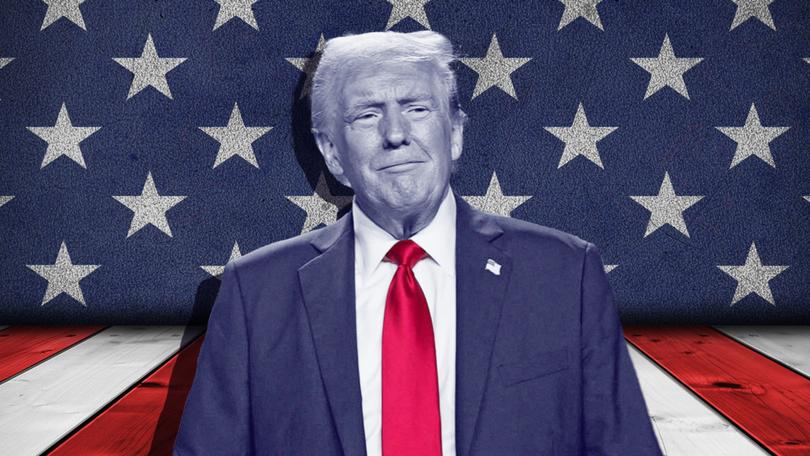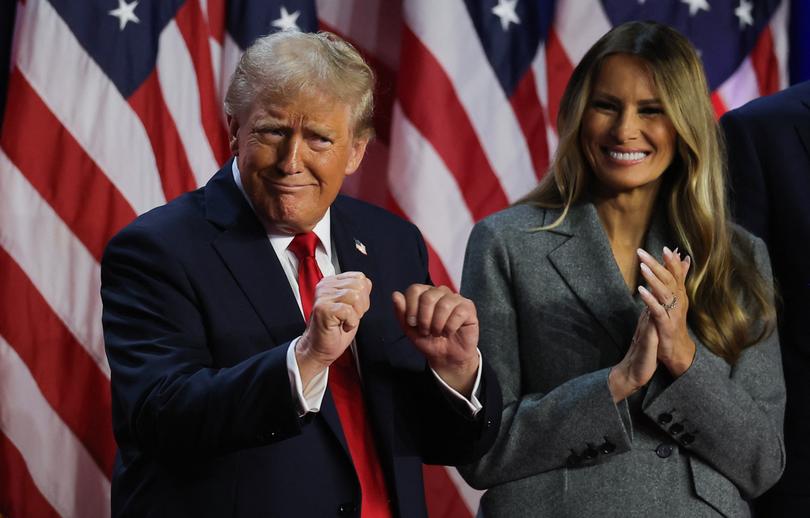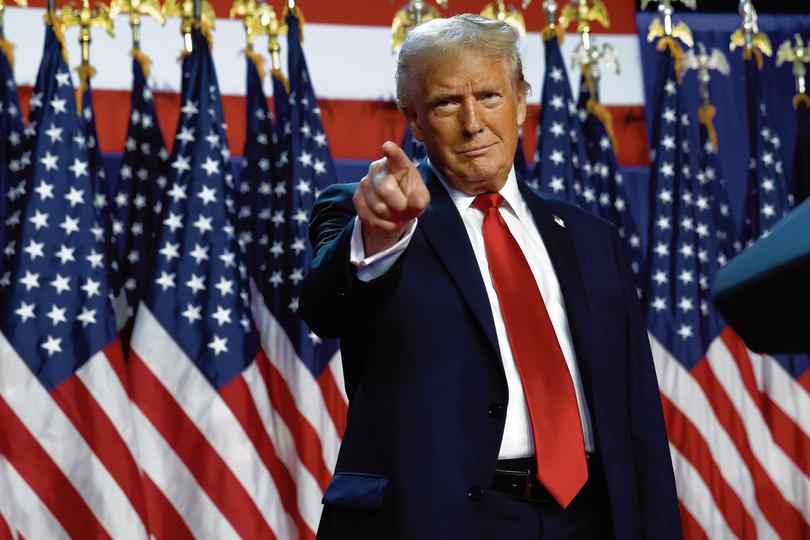PAUL MALEY: Voting for Donald Trump was a transaction, not a love affair
PAUL MALEY: Americans were able to put Trump’s character deficiencies aside because they were looking for someone to lead, not to be their mate.

The pageantry of the US presidential campaign always threatened to conceal a simple truth: for most Americans, this was likely to be a decision made from first principles.
The final result revealed fissures in American society. Kamala Harris won 56 per cent of the women voters, Donald Trump 46 per cent. Trump won 63 per cent of rural voters, Harris just 26 per cent. College-educated professionals favoured Harris, working-class whites flocked to Trump.
Commentators will pour over these factoids like the Rosetta Stone. Republicans will claim vindication. Democrats will find in them what consolation they can. Culture warriors will throw them at each other like sticks.
Sign up to The Nightly's newsletters.
Get the first look at the digital newspaper, curated daily stories and breaking headlines delivered to your inbox.
By continuing you agree to our Terms and Privacy Policy.But from this cage fight of grievances, identity politics and special interest brawling, a single point of consensus should now be obvious: Americans want a strong economy and secure borders.
National security and economic prosperity are the two non-negotiables of democratic politics. They always have been, and they always will be. Australians know this better than anyone.
Voters will indulge in other issues but only once they are satisfied the first two are in order.
In poll after poll Americans have been telling us what matters to them most. The economy. Inflation. The border.
That Trump, whose record as president towers over his opponent on these issues, won a sizable victory should surprise no one.
It certainly won’t surprise our own Prime Minister. Labor’s eroding fortunes owe in no small part to its pursuit of issues like the Voice to Parliament at a time when voters are far more interested in material concerns, like soaring mortgage payments.
Trump, who has a salesman’s ear for the market, knows this better than anyone.
Not that Tuesday’s result was not a testament to the mesmeric power of the 47nd president.
In the days before the election, Trump’s former communications director Anthony Scaramucci said this on The Rest is Politics, his popular podcast: “I have sons. I would not want my sons to end up like Donald Trump. I have a daughter. I would not want my daughter to be married to Donald Trump or have a relationship with Donald Trump.’’
It was a telling remark, indicative of the wider befuddlement that afflicts the progressive left when it comes to Trump. It never occurred to Scaramucci that Americans weren’t looking for a drinking buddy or a son-in-law.
They were hiring a chief executive.
If Trump’s critics had understood this about politics — that elections are a transaction, not a love affair — they might also have understood that the things that so incensed them about Trump did not necessarily bother voters, at least not in equal measure.
At the very least they would have been better equipped to mount an effective defence against a man they kept telling us represented a mortal threat to democracy itself.
But they did not. Instead large swathes of the broadsheet media, addicted as ever to overstatement, preferred to moralise rather than report.

Even after the election, The New York Times was still scratching its head, trying to make sense of America’s baffling misstep.
“Rather than be turned off by Mr Trump’s flagrant, anger-based appeals along lines of race, gender, religion, national origin and especially transgender identity, many Americans found them bracing,’’ ran the lead story on the Times website.
‘’Rather than be offended by his brazen lies and wild conspiracy theories, many found him authentic. Rather than dismiss him as a felon found by various courts to be a fraudster, cheater, sexual abuser and defamer, many embraced his assertion that he has been the victim of persecution.’’
Those who insist that Americans themselves are the problem have a question to answer: how is it that the same America that voted for Trump in 2016 four years earlier granted America’s first black, progressive president his second term in office? And why then did they sack this avatar of their basest instincts for an ageing liberal with an ambitious climate change agenda?
So what now?
What will Trump do now that Elon Musk, Dana White and the Heritage Foundation are back in the White House?
Will they deport migrants? Withdraw support for Ukraine? Start a trade war? A real one? Will Trump appoint Robert F Kennedy his secretary of health and ban fluoride from drinking water?
Trump’s backers assure us the president-elect doesn’t mean half of what he says. Normally this would be a stinging denunciation of character. With Trump, it’s offered as a defence.
I confess, as a centre-right conservative the rise of Trumpism troubles me.
Trump cares little for the norms, institutions and values that guided Regan, Thatcher, Churchill and Howard.
His protectionist instincts should worry anyone who believes free markets are the fairest and most efficient way of allocating goods across the economy. The centrepiece of his plan for American renewal, tariffs, are a regressive tax that will be paid by American consumers, not the countries in question.
It is foolish to think Trump is a hero to the right simply because he has stuck it to the left.
But in politics, things are never as good as they look or as bad as they seem.
A cursory look at US history reveals America has survived worse. In 1968 Martin Luther King was assassinated, Robert F Kennedy was shot dead and race riots wracked American cities, all within four months of each other.

America is the world’s oldest democracy, and its most resilient. It has survived wars, pandemics, depressions, political violence and civil wars.
The age of disinformation might have given us deepfakes, Russian Facebook ads and Q-Anon, but it has also transferred undreamt of power to the individual to interrogate, analyse and discover.
The simplest voter in the most distant corner of the realm has access to more information than the most enlightened voter had just 20 years ago.
The American voter is a tougher mark than he’s ever been. So for that matter is the Australian.
For this reason alone, democracy will be fine.
Paul Maley is a journalist and former political advisor. He is the host of Meridian100, a global issue podcast and director of Hemisphere East, a strategic consulting firm
